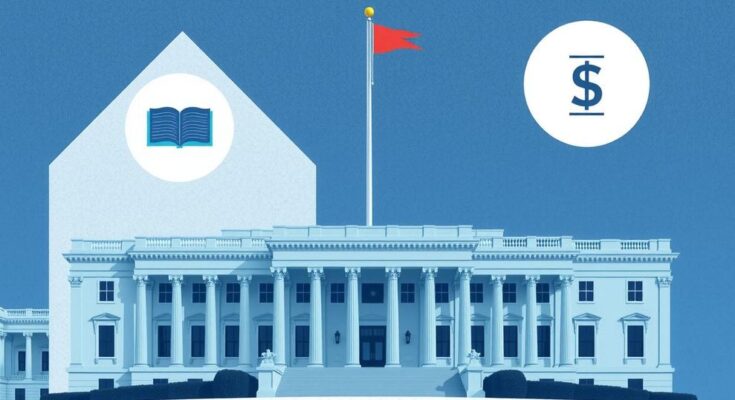The White House’s recent request for significant federal budget cuts has met resistance from some Republican senators. The Office of Management and Budget Director Russell Vought defended these cuts during a Senate Appropriations Committee meeting. Targeting around $9.4 billion in previously allocated funds, concerns have been raised particularly about proposed cuts to key initiatives such as PEPFAR, aimed at fighting HIV and AIDS, which could have dire health implications for many.
Debate Over DOGE Spending Cuts Heats Up
The Trump administration’s spending cuts have sparked quite a bit of controversy after the White House’s Office of Management and Budget spoke before the Senate. The Director, Russell Vought, argued for the proposed cuts, labelling the plan as carefully considered and reflecting Congressional input. The proposal seeks to claw back around $9.4 billion from the federal budget, targeting what they say are programs that the majority of Americans find unpalatable. Vought’s comments came during a Senate Appropriations Committee meeting, held against a backdrop of growing skepticism from certain Republican senators about the extent of these cuts.
Senators Question PEPFAR and Public Broadcasting Cuts
Several Republican senators are sounding alarm bells regarding this legislative package, notably concerning cuts to the PEPFAR initiative, which is aimed at combating HIV and AIDS. This initiative has been praised for saving countless lives since its inception two decades ago under George W. Bush. Senator Susan Collins, a central figure in this conversation, insisted that PEPFAR continues to hold bipartisan support, warning that reducing funds in this area would be both misguided and damaging to public health efforts. It’s hard to ignore how cutting preventive health programs could have long-term negative effects on communities and the healthcare system as a whole.
Concerns Rise Over Local Media Impact
Meanwhile, public broadcasting funding has also caught fire among Senate members. Senators Collins and South Dakota’s Mike Rounds expressed deep apprehension that cuts could disrupt essential services, particularly for remote areas where residents rely heavily on these stations for information and alerts. The cuts would notably impact the Corporation for Public Broadcasting, which allocates modest funds to platforms like NPR and PBS. With some local stations hanging by a thread as it is, concerns were raised that a reduction could impede their ability to deliver crucial community-focused content.
Mitch McConnell Advocates for Responsible Foreign Aid
Senate Majority Leader Mitch McConnell weighed in as well, calling attention to the importance of maintaining “soft power” internationally. He suggested reforming US investments in foreign aid was indeed necessary, yet his tone suggested frustration with the chaotic nature of the proposed cuts. McConnell cautioned that while it was vital to sift through ineffective programmes, doing so carelessly could create vacuums in critical global regions that could then be seized by rivals like China. His insistence on responsible investments in international relations was meant to underline the complex balance between cost-cutting and preserving US influence abroad.
Vought Defends Cuts Amidst Heightened Tensions
In this ongoing debate, Vought has defended the administration’s stance, insisting that no vital funding for life-saving programmes would be compromised. He reiterated that the aim was to dismantle what he describes as insidious foreign aid initiatives masked as charitable efforts, which could detract from American interests. However, the tension remains high, as the wider implications of these cuts could reverberate beyond just budgetary figures, affecting public health and media landscapes.
What are the proposed budget cuts?
The proposed cuts aim to reduce nearly $9.4 billion from federal programmes deemed unpopular. However, this may impact critical areas like health initiatives and public broadcasting.
Why is the administration proposing these cuts?
The administration believes these cuts to foreign aid programmes are necessary for protecting American interests, as some programmes are seen as funding efforts that do not align with US goals.
What is PEPFAR and why is it important?
PEPFAR is a longstanding bipartisan initiative that has provided vital support to combat HIV and AIDS across the globe. Cutting its funding raises crucial health concerns.
How will these cuts affect public broadcasting?
Concerns are primarily about maintaining quality public broadcasting services, especially in rural areas that require accessible information and emergency alert systems.
What did Mitch McConnell say about foreign aid?
McConnell stressed the need for maintaining “soft power” to foster global peace and protect American interests abroad. He warned against leaving power vacuums for adversaries like China.




